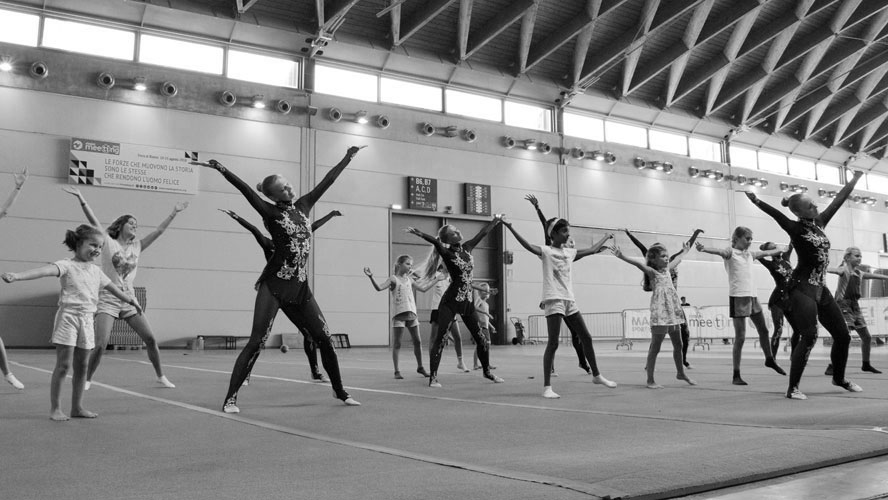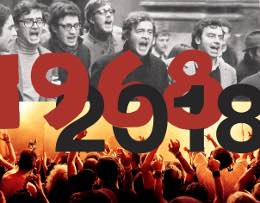
«WE WANT EVERYTHING» 1968-2018
Edited by Andrea Avveduto, Maria Bocci, Pietro Bongiolatti, Edoardo Bressan, Marta Busani, Francesco Magni, Luca Pesenti, Paolo Valvo
19 August 2018 - 25 August 2018
Piazza Padiglione A5

The exhibition stems from the desire of a group of university students - accompanied by teachers and researchers and secondary school teachers - to delve into a decisive moment in the history of the twentieth century, the year Sixty-eight, who risks remaining as a "myth" , the Founder of contemporary society (negative or positive), without realizing its historical significance.
The exhibition's itinerary thus frames the year Sixty-eight within the profound changes that have changed Italy and Western society in the 1960s, starting from the economic boom aka Italian economic miracle and the emergence of consumerism to the students’ protests at the end of the decade. It is a path marked by the application of authenticity claimed by the "young people", which perhaps emerge for the first time as a self-governing social group. The exhibition then addresses the contradictory outcomes of the youth protest that, if it leads to the overcoming of old habits in favor of new forms of freedom and sociability, will be resolved in the success of that radical individualism that inspires today’s society.
«Ce n'est qu'un début», recited one of the slogans of «French May». In fact there are many themes emerged in the Sixty-eight that still today challenge us: the relationship between children and adults, the dialectic between tradition and innovation, the correlation between desire and utopia and the affirmation of subjectivity by reference to the rights . It is therefore legitimate to ask whether the current "change in age" has its roots even in that sort of "anthropological revolution" that began in the 1960s. The exhibition will try to address these questions, offering a daily space for meeting and communication with protagonists of the society of the time and today.
There are so many themes that emerged in the Sixty-Eight that still today interpolate us and push us to ask ourselves whether the current "vintage change" has its roots also in that sort of "anthropological revival" that has begun in the sixties.
carried out by: Francesco Seghezzi, Matteo Agazzi, Alessia Barbone, Margherita Bertani, Rebecca Bonfanti, Eleonora Bonizzato, Gabriele Borsotti, Elisa Brambati, Cecilia Maria Bravi, Stefano Buongarzone, Martino Busnelli, Elisabetta Campetella, Stefano Castiglioni, Annalisa Costanzo, Angelo D'Emilio, Sara Farè, Giacomo Fornasieri, Antonella Frongillo, Margherita Giambi, Giovanni Godio, Vera Goggi, Giacomo Grassi, Clementina Grasso, Giulia Guidi, Giorgio Impellizzieri, Pietro Masinelli, Federico Mortaro, Nicolò Pepe, Andrea Pezzini, Andrea Podini, Elena Puncioni, Benedetta Quadrio, Pietro Raimondi, Ludovica Rencricca, Lorenzo Roesel, Andrea Scalia, Marta Tullio, Marco Saporiti, Lucia Socci, Teresa Zagra, Paolo Zampieri.





